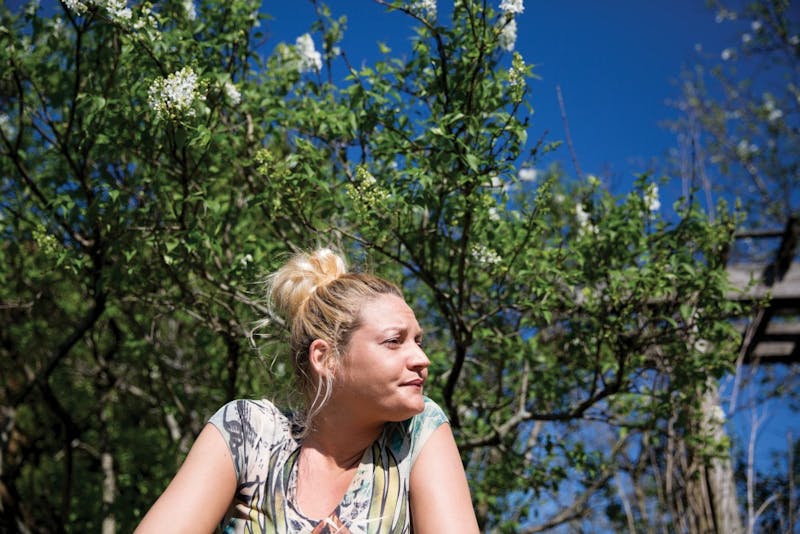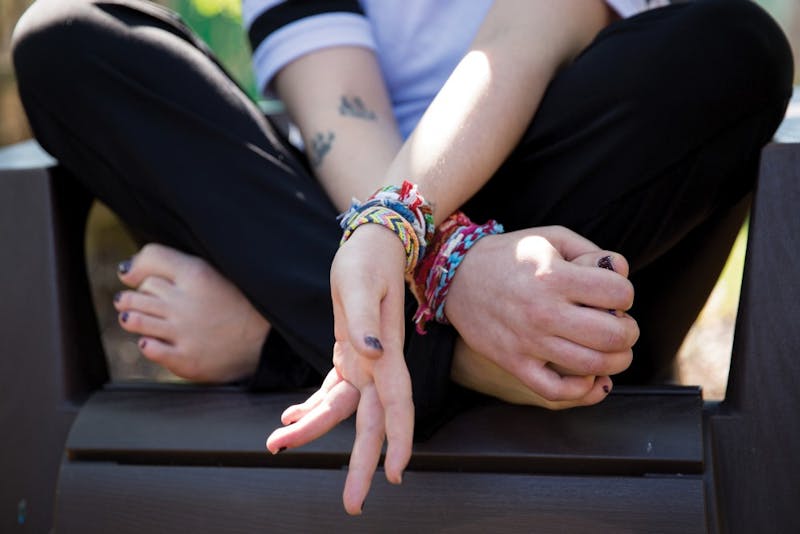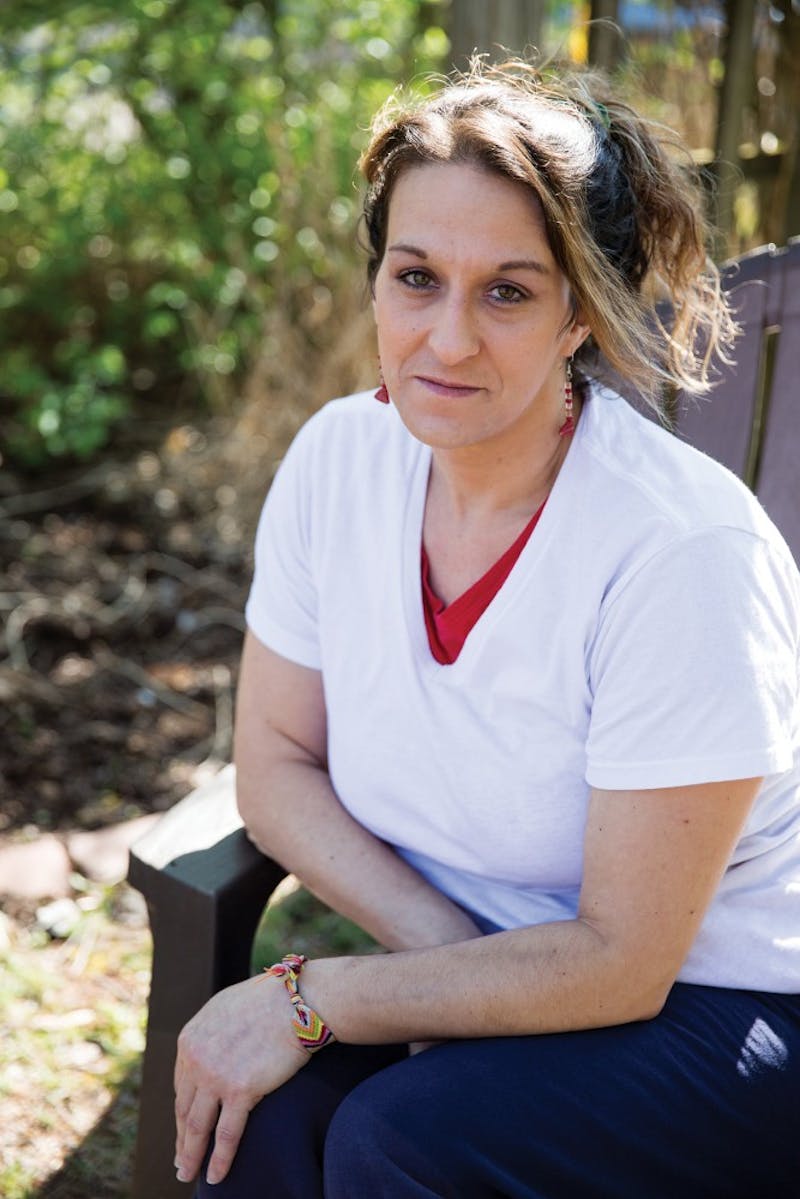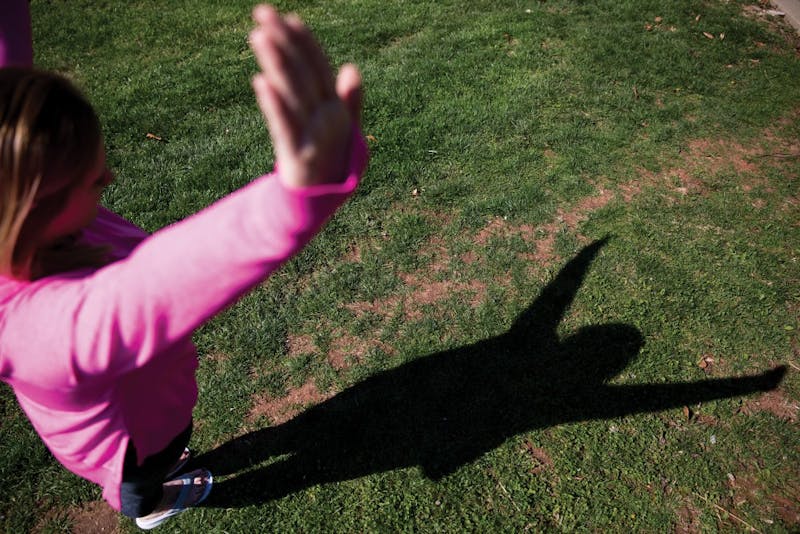


Satellite Image from Google Earth
Lining the path to the front door of the Rural Women’s Recovery Program house in Athens County are several hand-painted stones, placed among the now-blooming flowers and carefully maintained garden.
“Every day is a second chance.” “Perfect imperfection.” “Perfectly broken.” “We do recover.” The stones are a cheery accessory to the calming grounds of the cozy, log cabin-like facility.
The women inside the home are working through their recoveries, whether that be due to drug or alcohol dependency or mental health diagnoses.
Often, they have been subjected to a vicious cycle of trauma after trauma, Catherine Chelak, program director at Rural Women’s, said. Here, they follow a 12-step model with other women and take the time they need to heal. It’s a sanctuary for many women, she added.
“We need a paradigm shift where wellness is sought,” Chelack said.
The Post visited Rural Women’s on April 5 and talked to six women in the program, some of whom asked to remain anonymous due to the stigmas associated with addiction and recovery. After suffering from dependency issues or traumatic experiences, the women echoed those stones outside: We do recover.

Megan Archer, 37, of Dresden, sits at a picnic table outside of the Rural Women’s Recovery house. She came to the program earlier this year, she said, because she was “sick and tired of being sick and tired” after being there physically for her children, but not emotionally. At the time, she was suffering from an addiction to heroin and prescription drugs. She’s about halfway through the program and said she’s hoping to enter intensive outpatient therapy in Zanesville once she leaves Athens. It might take a lot of work to get sober, she added, but it’s worth sticking to a path toward recovery. “I’ve lost a couple friends to this addiction,” she said. “I don’t want to be that one.”

A 23-year-old client of Rural Women’s looks out over Athens’ hilly terrain on a warm day. The woman, who is pregnant, asked to not be identified by name for this article. She found Rural Women’s through her parole officer about two months ago and said her recovery has been the calmest part of her life thus far. Unless you’ve been through addiction, she said, it’s difficult to understand. “If you want to save your life, this is it,” she said. “It’s harder to give up when you’ve worked so hard for something.”

Aimee Kincaid, 24, of McConnelsville, sits cross-legged in a chair outside Rural Women’s. She said her addiction began when she was 15 after she delivered her son by cesarean section and was prescribed Percocet. Within the next year, she started using heroin. Her probation officer referred her to the program, and she came to the house on Feb. 14. “My son is 8 now, and he really needs me,” she said. “This is an amazing place, I’ve learned so much about myself here, not just the using but why I started using in the first place. … I was like a body without a soul.”

Chelsea Holland, 25, of Zanesville, keeps pictures of her children posted in her shared room at Rural Women’s. She came to the program March 20 and said she has a long journey ahead of her. After a difficult childhood, she was ecstatic when she found out that she was pregnant. But when her child was just a few days old, a former friend told children services that she was abusing prescription pills. “I had to give her away,” she said of her daughter, who is now 2 years old. “That broke me.” Later, a friend turned her on to heroin. “My life went to complete chaos and hell,” she said. During that time, she became pregnant again. But when she’s recovered, Holland has exceptional goals: regain custody of both her children, go to back to school, get a job and enlist in the United States Navy.

Mindy, 37, of Athens, sits outside of Rural Women’s. She asked to only be identified by her first name. After multiple injuries and a car accident, she was prescribed opioid painkillers and was later introduced to heroin. She always wanted help, she said, but never quite knew how to ask. “At first, when I came here I was ready to walk out the doors, but I just knew somewhere in my life I wanted to be proud to say my name again,” she said. “It’s taught me how to be responsible, it’s taught me how to get my dignity back. I don’t have hopelessness in my life anymore.”

Jenn, 27, of north central Ohio, poses for a portrait outside of Rural Women’s. She asked to only be identified by her first name. The last time her story was told, she said, was when her drug overdose was on the front page of a newspaper. “That day I hadn’t planned on coming back from that overdose,” she said. “Thankfully, my higher power was working in my favor and there was a random nurse and doctor around the corner. They were able to call 911 in time to save my life.” Being known by her addiction rather than her recovery was devastating, she said. Now, she wants to reach out to people who feel the same way she did that day — that they should take their life, unable to get away from their addiction — and let them know there is hope. “There are people you can trust, and people that want to help you,” she said